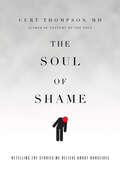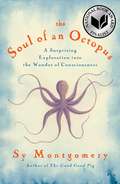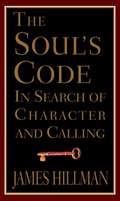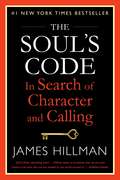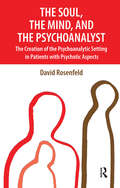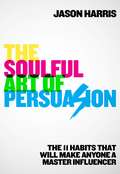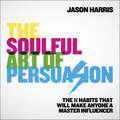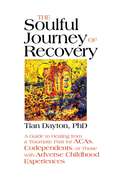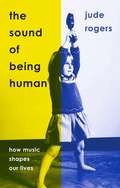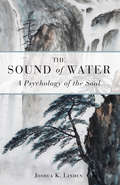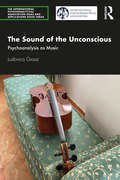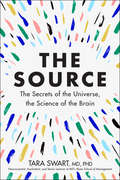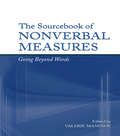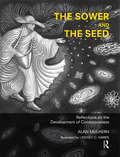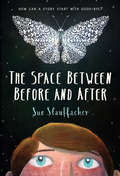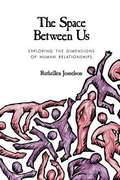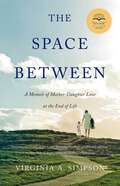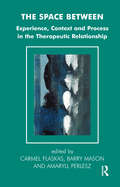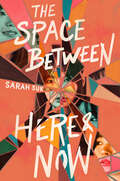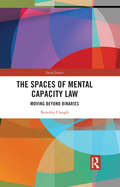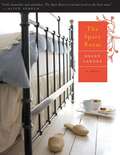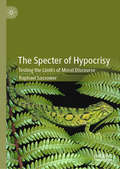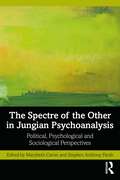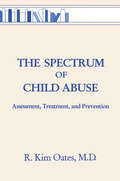- Table View
- List View
The Soul of Shame: Retelling the Stories We Believe About Ourselves
by Curt ThompsonThe Gospel Coalition Top Books of 2015 in Faith and WorkHearts Minds Bookstore's Best Books of 2015, Applied Theology, Basic Christian Living, Whole Life DiscipleshipWe're all infected with a spiritual disease. Its name is shame.Whether we realize it or not, shame affects every aspect of our personal lives and vocational endeavors. It seeks to destroy our identity in Christ, replacing it with a damaged version of ourselves that results in unhealed pain and brokenness. But God is telling a different story for your life.Psychiatrist Curt Thompson unpacks the soul of shame, revealing its ubiquitous nature and neurobiological roots. He also provides the theological and practical tools necessary to dismantle shame, based on years of researching its damaging effects and counseling people to overcome those wounds.Thompson's expertise and compassion will help you identify your own pains and struggles and find freedom from the lifelong negative messages that bind you. Rewrite the story of your life and embrace healing and wholeness as you discover and defeat shame's insidious agenda.
The Soul of an Octopus: A Playful Exploration Into the Wonder of Consciousness
by Sy MontgomeryIn this astonishing book from the author of the bestselling memoir The Good Good Pig, Sy Montgomery explores the emotional and physical world of the octopus-a surprisingly complex, intelligent, and spirited creature-and the remarkable connections it makes with humans. Sy Montgomery's popular 2011 Orion magazine piece, "Deep Intellect," about her friendship with a sensitive, sweet-natured octopus named Athena and the grief she felt at her death, went viral, indicating the widespread fascination with these mysterious, almost alien-like creatures. Since then Sy has practiced true immersion journalism, from New England aquarium tanks to the reefs of French Polynesia and the Gulf of Mexico, pursuing these wild, solitary shape-shifters. Octopuses have varied personalities and intelligence they show in myriad ways: endless trickery to escape enclosures and get food; jetting water playfully to bounce objects like balls; and evading caretakers by using a scoop net as a trampoline and running around the floor on eight arms. But with a beak like a parrot, venom like a snake, and a tongue covered with teeth, how can such a being know anything? And what sort of thoughts could it think? The intelligence of dogs, birds, and chimpanzees was only recently accepted by scientists, who now are establishing the intelligence of the octopus, watching them solve problems and deciphering the meaning of their color-changing camouflage techniques. Montgomery chronicles this growing appreciation of the octopus, but also tells a love story. By turns funny, entertaining, touching, and profound, The Soul of an Octopus reveals what octopuses can teach us about consciousness and the meeting of two very different minds.
The Soul's Code: In Search of Character and Calling
by James HillmanPlato and the Greeks called it "daimon," the Romans "genius," the Christians "guardian angel." Today we use the terms heart, spirit, and soul. To James Hillman, the acknowledged intellectual source for Thomas Moore's bestselling sensation Care of the Soul, it is the central and guiding force of his utterly compelling "acorn theory"--in which each life is formed by a unique image, an image that is the essence of that life and calls it to a destiny, just as the mighty oak's destiny is written in the tiny acorn. In this new look at age-old themes, Hillman provides a radical, frequently amusing, and highly accessible path to realization through an extensive array of examples. He urges his readers to discover the "blueprints" particular to their own individual lives, certain that there is more to life than can be explained by genetics or environment. As he says, "We need a fresh way of looking at the importance of our lives." What The Soul's Code offers is an inspirational, positive approach to life--a way of seeing, and a way of recovering what has been lost of our intrinsic selves.
The Soul's Code: In Search of Character and Calling
by James HillmanPlato and the Greeks called it "daimon," the Romans "genius," the Christians "guardian angel." Today we use the terms heart, spirit, and soul. To James Hillman, the acknowledged intellectual source for Thomas Moore's bestselling sensation Care of the Soul, it is the central and guiding force of his utterly compelling "acorn theory"--in which each life is formed by a unique image, an image that is the essence of that life and calls it to a destiny, just as the mighty oak's destiny is written in the tiny acorn.In this new look at age-old themes, Hillman provides a radical, frequently amusing, and highly accessible path to realization through an extensive array of examples. He urges his readers to discover the "blueprints" particular to their own individual lives, certain that there is more to life than can be explained by genetics or environment. As he says, "We need a fresh way of looking at the importance of our lives."What The Soul's Code offers is an inspirational, positive approach to life--a way of seeing, and a way of recovering what has been lost of our intrinsic selves.
The Soul, the Mind, and the Psychoanalyst
by David RosenfeldThis book is based on various cases whose common factor is how the psychoanalytic setting is created: the internalization and realization inside the patient`s mind: with the feeling of fixed hours and the transferential relation with the psychoanalyst. Referring to the great masters of psychoanalysis, the author guides us step by step through the mysterious terrain of the mind, especially in its most regressive, primitive and psychotic aspects. Thomas Ogden, commenting on the papers collected here, wrote that 'they represent two of the most important contributions of the past decade to the understanding of the psychoanalytic treatment of psychotic patients'. This book is intended to be felt and thought about. The reader is asked to read between the lines, to imagine and feel beyond the words on the page. It will appeal to psychoanalysts, psychotherapists and students.
The Soulful Art of Persuasion: The 11 Habits That Will Make Anyone A Master Influencer
by Jason HarrisThe Soulful Art of Persuasion is a revolutionary guide to becoming a master influencer in an age of distrust through the cultivation of character-building habits that are essential to both personal growth and sustained business success. This isn't a book full of tips and life-hacks. Instead, The Soulful Art of Persuasion will develop the habits that others want to be influenced by. This book is based on a radical idea: Persuasion isn't about facts and argument. It's all about personal character.Jason Harris, CEO of the powerhouse creative agency Mekanism, argues that genuine persuasion in the twenty-first century is about developing character rather than relying on the easy tactics of flattery, manipulation, and short-term gains. It is about engaging rather than insisting; it is about developing empathy and communicating your values. Based on his experience in and out of the boardroom, and drawing on the latest in-depth research on trust, influence, and habit formation, Harris shows that being persuasive in a culture plagued by deception means rejecting the ethos of the quick and embracing the commitment of putting your truest self forward and playing the long game. Through instructive and entertaining stories, Harris lays out the 11 habits that will guide readers to become authentically persuasive, including Earning respect through collaboration Becoming the person others want to be around Practicing generosity through gestures big and smallPersuasion today is about personal excellence, sharing the stage, and respecting other people's motivations. In The Soulful Art of Persuasion, Jason Harris shows us the way.
The Soulful Art of Persuasion: The 11 Habits That Will Make Anyone A Master Influencer
by Jason HarrisThe Soulful Art of Persuasion is a revolutionary guide to becoming a master influencer in an age of distrust through the cultivation of character-building habits that are essential to both personal growth and sustained business success. This isn't a book full of tips and life-hacks. Instead, The Soulful Art of Persuasion will develop the habits that others want to be influenced by. This book is based on a radical idea: Persuasion isn't about facts and argument. It's all about personal character.Jason Harris, CEO of the powerhouse creative agency Mekanism, argues that genuine persuasion in the twenty-first century is about developing character rather than relying on the easy tactics of flattery, manipulation, and short-term gains. It is about engaging rather than insisting; it is about developing empathy and communicating your values. Based on his experience in and out of the boardroom, and drawing on the latest in-depth research on trust, influence, and habit formation, Harris shows that being persuasive in a culture plagued by deception means rejecting the ethos of the quick and embracing the commitment of putting your truest self forward and playing the long game. Through instructive and entertaining stories, Harris lays out the 11 habits that will guide readers to become authentically persuasive, including Earning respect through collaboration Becoming the person others want to be around Practicing generosity through gestures big and smallPersuasion today is about personal excellence, sharing the stage, and respecting other people's motivations. In The Soulful Art of Persuasion, Jason Harris shows us the way.(P) 2019 Penguin Random House Audio
The Soulful Journey of Recovery: A Guide to Healing from a Traumatic Past for ACAs, Codependents, or Those with Adverse Childhood Experiences
by Tian DaytonMore than just a book full of the latest information, this is a dynamic, interactive, and personalized journey of recovery for those impacted by adverse childhood experiences (ACES). Finally, they can put their past behind them where it belongs!For those who have grown up in a family with addiction, mental illness, or other adverse childhood experiences (ACES), the heartache and pain doesn&’t end when they grow up and leave home. The legacy can last a lifetime and spread to generations unseen, as author Janet Wotitiz first showed readers in the groundbreaking Adult Children of Alcoholics. In The ACoA Trauma Syndrome Dr. Tian Dayton picked up where Dr. Woititz left off, filling in the decades of research that tell us why pain from yesterday recreates itself over and over again in our today. In The Soulful Journey of Recovery, Dr. Dayton gives us the how. There is a journey of recovery that you can start today. Simple, elegantly written and researched, poignant, penetrating, and on point, Dr. Dayton will move with you through the confusion, pain, and anger you may carry in secrecy and silence. Through engaging and enlightening exercises, you will give voice to hidden wounds and space to your innermost emotions and thoughts. Online links will also offer guided meditations, film clips and other tools to enhance the work you do in the book. You will learn what happened to you growing up with dysfunction and you will learn how to deal with it in the present. You will discover that recovery is a self-affirming life adventure, and the kindest and best thing you can do for yourself and future generations. Some books can change your life. This is one of them.
The Sound of Being Human: How Music Shapes Our Lives
by Jude Rogers'Too often we treat popular music as wallpaper surrounding us as we live our lives. Jude Rogers shows the emotional and cerebral heft such music can have. It's a personal journey which becomes universal. Fascinating' Ian Rankin'Moving and absorbing, The Sound of Being Human mixes memoir, analysis, anecdote and personal chronicle into a mosaic that evokes what music means to the individual and the human tribe. A candid, beautiful read' Stuart MaconieThe Sound of Being Human explores, in detail, why music plays such a deep-rooted role in so many lives, from before we are born to our last days. At its heart is Jude's own story: how songs helped her wrestle with the grief of losing her father at age five; concoct her own sense of self as a lonely adolescent; sky-rocket her relationships, both real and imagined, in the flushes of early womanhood, propel her own journey into working life, adulthood and parenthood, and look to the future.Shaped around twelve songs, ranging from ABBA's 'Super Trouper' to Neneh Cherry's 'Buffalo Stance', Kraftwerk's 'Radioactivity' to Martha Reeves and the Vandellas' 'Heat Wave', the book combines memoir and historical, scientific and cultural enquiry to show how music can shape different versions of ourselves; how we rely upon music for comfort, for epiphanies, and for sexual and physical connection; how we grow with songs, and songs grow inside us, helping us come to terms with grief, getting older and powerful memories. It is about music's power to help us tell our own stories, whatever they are, and make them sing.
The Sound of Being Human: How Music Shapes Our Lives
by Jude Rogers'Too often we treat popular music as wallpaper surrounding us as we live our lives. Jude Rogers shows the emotional and cerebral heft such music can have. It's a personal journey which becomes universal. Fascinating' Ian Rankin'Moving and absorbing, The Sound of Being Human mixes memoir, analysis, anecdote and personal chronicle into a mosaic that evokes what music means to the individual and the human tribe. A candid, beautiful read' Stuart MaconieThe Sound of Being Human explores, in detail, why music plays such a deep-rooted role in so many lives, from before we are born to our last days. At its heart is Jude's own story: how songs helped her wrestle with the grief of losing her father at age five; concoct her own sense of self as a lonely adolescent; sky-rocket her relationships, both real and imagined, in the flushes of early womanhood, propel her own journey into working life, adulthood and parenthood, and look to the future.Shaped around twelve songs, ranging from ABBA's 'Super Trouper' to Neneh Cherry's 'Buffalo Stance', Kraftwerk's 'Radioactivity' to Martha Reeves and the Vandellas' 'Heat Wave', the book combines memoir and historical, scientific and cultural enquiry to show how music can shape different versions of ourselves; how we rely upon music for comfort, for epiphanies, and for sexual and physical connection; how we grow with songs, and songs grow inside us, helping us come to terms with grief, getting older and powerful memories. It is about music's power to help us tell our own stories, whatever they are, and make them sing.
The Sound of Water
by Joshua K. LindenAfter a lifetime of living, Joshua K. Linden heard the sound of water in a whole new way. The mesmerizing, meditative sound resonated so deeply within his soul that it propelled him on a seven year journey of reflection: on soul, ego, and our place within the web of life. What he has discovered during his journey is suffering is a result of the battle between the ego and the Soul. The ego wants to plan and create a future whereas the Soul needs to express itself in the present. If one is truthful, eventually one awakens to the fact that the body will die, and that the future in this dimension is limited. The Sound of Water leads readers to understand it is in their best interest to shed the ego and to live life with the Soul that is eternal. Linden's book points you in the direction of this Source. This is where your essence and the essence of all things flow into one another--without deception, distortion, or corruption. Beautifully designed, The Sound of Water offers a series of thoughts and meditations that will guide you in your own journey to reconnect with the Source. You are invited to read it from beginning to end, or flip to a page at random to find deep insight and wisdom; inspiring you to awaken to living a life that deeply honors and values the Soul.
The Sound of the Unconscious: Psychoanalysis as Music (The International Psychoanalytical Association Psychoanalytic Ideas and Applications Series)
by Ludovica GrassiIn this book, Ludovica Grassi explores the importance of music in psychoanalysis, arguing that music is a basic working tool for psyche, as words are composed of sound, rhythm and intonation more than lexical meaning. Starting from ethnomusicological, evolutionary, neurodevelopmental, psychological and psychoanalytical perspectives, the book explores music’s symbolic status, structure and way of operating compared to unconscious psychic functioning. Extraordinary similarities are revealed, especially in mechanisms such as repetition, imitation, variation (transformation), intimacy and the work of mourning, of the negative and of nostalgia. Moreover, silence and absence are essential components of music as well as of psychic and symbolic functioning. Time and temporality are specifically investigated in the book as key elements both in music and in symbolization and subjectivation processes. The role of the word’s phonic kernel and of the voice as fundamental links to emotions, the body, the sexual and the infantile has promising implications for psychoanalytic work. All these elements find an articulation in the natural as well as complex activity of listening, which conveys a tri-dimensional and polyphonic dimension of the world, so important both in music and in psychoanalysis. Illuminating the link between music and analysis in new and contemporary ways, The Sound of the Unconscious explores the resulting advances in theory and clinical practice and will be of great interest to practicing and training psychoanalysts and psychotherapists.
The Source: The Secrets of the Universe, the Science of the Brain
by Dr. Tara SwartFor the first time, a Neuroscientist and Senior Lecturer at MIT reveals the surprising science that supports The Law of Attraction as an effective tool for self-discovery and offers a guide to discovering your authentic self to access your best life now.Self-help books like The Secret show us that if we can tap into “The Law of Attraction,” we have the power to change our destiny simply by reshaping our mind. Millions of people have used the ancient systems of manifestation and visualization to find health, success, love, friendship, wealth, and more. But does the “Law of Attraction” actually work? And more important, is this kind of life-changing philosophy within reach for everyone, even the most skeptical among us?As Dr. Tara Swart, psychiatrist, neuroscientist, and Senior Lecturer at MIT shows us in The Source, if we can strip away our skepticism, these ancient tools of manifestation and visualization are fundamentally powerful and incredibly effective at freeing us of self-limiting behaviors and propelling us toward our truest, most authentic selves. Swart reveals how and why these systems actually work by offering the latest breakthroughs in neuroscience and behavioral psychology, including lessons in neuroplasticity, magneticism, emotional and logical thinking, and even hydration, self-care, and relaxation. Next, she describes her own journey from skeptic to believer, and guides readers through the scientific breakthroughs and personal revelations that changed her from an unhappy, close-minded, and disconnected woman wanting more from life, to a successful entrepreneur living with confidence, purpose, and joy. The truth is, most of the things we want—health, happiness, wealth, love—are governed by our ability to think, feel, and act—in other words, by our brain. Dr. Swart combines the insights and inspiration of The Secret with the practical lessons of The Master Key System to help a new generation fulfill their dreams. The Source is a rigorous, proven toolkit for unlocking our minds—and reaching our fullest potential.
The Sourcebook of Nonverbal Measures: Going Beyond Words
by Valerie ManusovThe Sourcebook of Nonverbal Measures provides a comprehensive discussion of research choices for investigating nonverbal phenomena. The volume presents many of the primary means by which researchers assess nonverbal cues. Editor Valerie Manusov has collected both well-established and new measures used in researching nonverbal behaviors, illustrating the broad spectrum of measures appropriate for use in research, and providing a critical resource for future studies.With chapters written by the creators of the research measures, this volume represents work across disciplines, and provides first-hand experience and thoughtful guidance on the use of nonverbal measures. It also offers research strategies researchers can use to answer their research questions; discussions of larger research paradigms into which a measure may be placed; and analysis tools to help researchers think through the research choices available to them.With its thorough and pragmatic approach, this Sourcebook will be an invaluable resource for studying nonverbal behavior. Researchers in interpersonal communication, psychology, personal relationships, and related areas will find it to be an essential research tool.
The Sower and the Seed: Reflections on the Development of Consciousness
by Alan MulhernThe Sower and the Seed explores the origins of consciousness from a mytho-psychological angle. The concept of immanence, a vast intelligence within the evolutionary process, provides the underlying philosophy of the book, presented as a creative-destructive spirit that manifests higher orders of complexity (such as life, intelligence, self-consciousness) and then dissolves them. The book explores the human psyche as immersed in nature and the realm of the Great Mother, showing how the themes of fertility and power, applicable to all life forms, saturate the history of humanity - most evidently in the period stretching from 40,000 years ago up to modern civilizations. The book examines in particular the transition to patriarchal religious consciousness, in which a violent separation from the world of nature took place.
The Space Between Before and After
by Sue StauffacherThomas learns to navigate his grief when his mother disappears by creating a fantasy story about his mother where she is safe.One morning 10-year-old Thomas's mother tells him about a dream she had about taking a trip by herself--which is odd because lately his mother has been too depressed to even leave the house. But when Thomas gets home from school, she's gone. The police search everywhere, and although they find her car, they can't find her. Thomas's neighbor helps him cope with his anxiety by having him think up a fantasy about where she might have gone. As time passes, Thomas takes charge of the story sending his mother on a quest in the astral plane. With the help of this narrative journey, his family, and his friends, Thomas begins to realize that even if his mother never comes back, he can still hold a place for her in his heart and mind.
The Space Between Us: Exploring the Dimensions of Human Relationships
by Ruthellen JosselsonIntegrating psychological theories with empirical evidence, the author of this volume draws fundamental conclusions about the nature and types of relationships, and develops eight dimensions of relatedness ranging from the very casual to the deeply intimate.<p><p> Each chapter examines a particular dimension and includes a brief life history of a person interviewed by the author. Particular attention is paid to how the type of relationship discussed shaped that person, with diagrams charting these relationships over time. The book also discusses how the sexes differ in the way they relate to others and the various forms that love can take.
The Space Between: A Memoir of Mother-Daughter Love at the End of Life
by Virginia A. Simpson2015-2016 Sarton Story Circle: Memoir Winner 2016-2017 Readers Views Award: Memoir/Autobiography/Biography Winner, West Pacific Regional Winner 2017 Independent Press Award: Relationships Winner 2017 Northern California Publishers and Authors Second Place in Book Cover 2017 Northern California Publishers and Authors Second Place in Memoir 2017 Readers' Favorite Book Award Bronze Winner 2017 International Book Awards: Autobiography/Memoir Finalist 2016 National Indie Excellence Awards: Memoir Finalist Everyone has or had a mother. Dr. Virginia A. Simpson did too. She thought they had a wonderful relationship and had worked out all of their issues when a life-threatening illness necessitated her mother, Ruth, come live with her. When her mother moved in, she brought with her all their old issues and during the six years they lived together, they added more. Although an expert in the field of death, dying, and bereavement, Virginia often found herself overwhelmed by her caregiving role as her mother&’s health continued to decline. She also felt herself on a race against time to heal their relationship before her mother died. Described as &“stunning, beautiful, and honest,&” The Space Between: A Memoir of Mother-Daughter Love at the End of Life offers an intimate window into the challenges of being a caregiving while also providing important information about the realities of end of life care. The Space Between gives us hope that even the most contentious relationship can be healed. By the end of Ruth&’s life, the only space between Virginia and her mother was filled with love.
The Space Between: Experience, Context, and Process in the Therapeutic Relationship (The Systemic Thinking and Practice Series)
by David Campbell Ros Draper Carmel Flaskas Barry Mason Amaryll Perlesz John Byng-HallThe papers in this book focus on many different aspects of the therapeutic relationship, including the self of the therapist, working cross-culturally and with language difference, impasse, risk taking, the place of research, and the influence of theory. Clinical examples illustrate successful as well as less succssful outcomes in therapy, and these clinical explorations make the book accessible to both systemic and non-systemic practitioners alike. Part of the Systemic Thinking and Practice Series.Contributors:Rhonda Brown; John Burnham; John Byng-Hall; Alan Carr; Carmel Flaskas; Jo Howard; Alfred Hurst; Ellie Kavner; Sebastian Kraemer; Inga-Britt Krause; Rabia Malik; Maeve Malley; Michael Maltby; Barry Mason; Sue McNab; Amaryll Perlesz; David Pocock; Hitesh Raval; Justin Schlicht; and Lennox K. Thomas.
The Space between Here & Now
by Sarah SukPerfect for fans of They Both Die at the End and You’ve Reached Sam, this gripping, atmospheric YA novel follows a teen with a mysterious condition that transports her to the past when she smells certain scents linked to specific memories.Seventeen-year-old Aimee Roh has Sensory Time Warp Syndrome, a rare condition that causes her to time travel to a moment in her life when she smells something linked to that memory. Her dad is convinced she’ll simply grow out of it if she tries hard enough, but Aimee’s fear of vanishing at random has kept her from living a normal life.When Aimee disappears for nine hours into a memory of her estranged mom—a moment Aimee has never remembered before—she becomes distraught. Not only was this her longest disappearance yet, but the memory doesn’t match up with the story of how her mom left—at least, not the version she’s always heard from her dad.Desperate for answers, Aimee travels to Korea, where she unravels the mystery of her memories, the truth about her mother, and the reason she keeps returning to certain moments in her life. Along the way, she realizes she’ll need to reconcile her past in order to save her present.From acclaimed author Sarah Suk comes an aching, powerful exploration of memory, grief, and the painful silences we must overcome to discover our truest selves.
The Spaces of Mental Capacity Law: Moving Beyond Binaries (Social Justice)
by Beverley CloughThis book explores the conceptual spaces and socio-legal context which mental capacity laws inhabit. It will be seen that these norms are created and reproduced through the binaries that pervade mental capacity laws in liberal legal jurisdictions- such as capacity/incapacity; autonomy/paternalism; empowerment/protection; carer/cared-for; disabled/non-disabled; public/private. Whilst on one level the book demonstrates the pervasive reach of laws questioning individuals mental capacity, within and beyond the medical context which it is most commonly associated with, at a deeper and perhaps more important level it challenges the underlying norms and assumptions underpinning the very idea of mental capacity, and reflects outwards on the transformative potential of these realisations for other areas of law. In doing so, whilst the book offers lessons for mental capacity law scholarship in terms of reform efforts at both domestic and internationals levels, it also offers ways to develop our understandings of a range of linked legal, policy and theoretical concepts. In so doing, it offers new critical vantage points for both legal critique and conceptual change beyond mental capacity law. The book will be of interest to researchers in mental capacity law, disability law and socio-legal studies as well as critical geographers and disability studies scholars.
The Spare Room
by Helen GarnerIn this short but very direct novel, Helen Garner explores the question: how much of ourselves must we give up to help a friend in need? Helen has little idea what lies ahead--and what strength she must summon--when she offers her spare room to an old friend, Nicola, who has arrived in Melbourne from Sydney for cancer treatments and who is skeptical of the medical establishment, placing all her faith in an alternative health center. Nicola is determined to find her own way to cope, regardless of the advice Helen offers. In the weeks that follow, Nicola's battle for survival will turn not only her own life upside down but also those of everyone around her. Helen unexpectedly finds herself driven through extremes of rage and tenderness to become Nicola's nurse, protector, guardian angel, and stony judge. Powerful and taut, and full of wisdom and dark laughter, The Spare Room is a magical gem of a book that packs a huge punch.
The Specter of Hypocrisy: Testing the Limits of Moral Discourse
by Raphael SassowerRaphael Sassower examines the concept of hypocrisy for its strategic potential as a means of personal protection and social cohesion. Given the contemporary context of post-truth, the examination of degrees or kinds of hypocrisy moves from the Greek etymology of masks worn on the theater stage to the Hebrew etymology of the color adjustment of chameleons to their environment. Canonical presuppositions about the uniformity of the mind and the relation between intention and behavior that warrant the charge of hypocrisy are critically reconsidered in order to appreciate both inherent inconsistencies in personal conduct and the different contexts where the hypocrisy appears. Sassower considers the limits of analytic moral and political discourses that at times overlook the conditions under which putative hypocritical behavior is existentially required and where compromises yield positive results. When used among friends, the charge of hypocrisy is a useful tool with which to build trust and communities.
The Spectre of the Other in Jungian Psychoanalysis: Political, Psychological, and Sociological Perspectives
by Marybeth Carter Stephen Anthony FarahThis volume explores Jung’s theories in relation to the concept of Other and in conjunction with the lived experience of it, while examining current events and cultural phenomena through the lens of Jungian and post-Jungian psychology, sociology, literature, film and philosophy. The contributors examine global expressions of these various viewpoints, disciplines and life experiences and how cultural, political and sociological complexes evoke challenges as well as invitations to the idea of the Other from intersecting and convergent perspectives. The Spectre of the Other in Jungian Psychoanalysis is timely and important reading for Jungian and post-Jungian analysts, therapists, academics, students and creatives.
The Spectrum Of Child Abuse: Assessment, Treatment And Prevention
by R. Kim OatesFirst published in 1996. With so much information available today in the area of child abuse, figuring out where to begin quickly becomes overwhelming. But the Spectrum of Child Abuse stands out from current literature in its comprehensiveness and balance. Dr. Oates presents a detailed, thoroughly referenced overview of the entire field- rather than focusing exclusively on one particular professional viewpoint or facet of the problem. The chapters encompass physical abuse, sexual abuse, emotional abuse and neglect. For each of these areas, the text offers a clear historical perspective in addition to pertinent data on incidence and epidemiology, contributing factors, assessment, treatment and prevention. Moreover, a wealth of case studies underscores the important and meaning of various intervention strategies.
